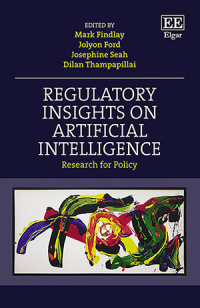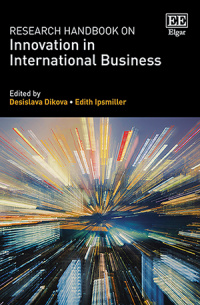Hardback
Handbook of Innovation & Appropriate Technologies for International Development
This timely Handbook provides a conceptual discussion and an empirical review of new disruptive forms of innovation producing appropriate technologies, which address both the needs of low-income populations worldwide, and provides alternative solutions for sustainable development.
More Information
Critical Acclaim
Contributors
More Information
This timely Handbook provides a conceptual discussion and a wide empirical presentation of new disruptive forms of innovation producing appropriate technologies, addressing the needs of low-income populations, and providing alternative solutions for sustainable development.
创新的手册和适当的技术ies for International Development expertly analyses and compares contributions of appropriate technologies in developing, emerging and industrialized economies, including China and India, and their global development impacts. Additionally, it covers the transversal role of new international communication technologies, open access, digital tools as well as entrepreneurship and innovation from within emerging economies and in industrialized nations. Using empirical analyses of cases and experiences in manufacturing sectors and services, it covers both the formal and informal economy, and provides an insightful focus on differences and similarities across borders and sectors.
NGO and private sector practitioners, public sector officers as well as academics specialized in development economics, entrepreneurship and engineering or management studies will find this Handbook to be illuminating and very informative. Science and technology producers and entrepreneurs will appreciate the global look into more sustainable development as related to appropriate technologies, and how they can be used across all economic backgrounds.
创新的手册和适当的技术ies for International Development expertly analyses and compares contributions of appropriate technologies in developing, emerging and industrialized economies, including China and India, and their global development impacts. Additionally, it covers the transversal role of new international communication technologies, open access, digital tools as well as entrepreneurship and innovation from within emerging economies and in industrialized nations. Using empirical analyses of cases and experiences in manufacturing sectors and services, it covers both the formal and informal economy, and provides an insightful focus on differences and similarities across borders and sectors.
NGO and private sector practitioners, public sector officers as well as academics specialized in development economics, entrepreneurship and engineering or management studies will find this Handbook to be illuminating and very informative. Science and technology producers and entrepreneurs will appreciate the global look into more sustainable development as related to appropriate technologies, and how they can be used across all economic backgrounds.
Critical Acclaim
‘The chapter authors take a comprehensive and eclectic approach to “global engineering” in all its aspects, from academic research and learning, to practical approaches by international organizations and NGOs, to the experience of practitioners and communities who experimented with appropriate technologies — or were experimented on with them. This compendium explains the origin stories of the pathbreaking practitioners and organizations, and provides both the traditional socio-economic and political frameworks for appropriate technologies as well as the new, somewhat controversial, decolonization narrative, with a range of LMIC examples. The human aspect gets attention, including the need for protection of subjects and participants, and the ethical dimensions, with the limitations university’s institutional review processes may face about collection and analysis of data, use of AI and machine learning techniques to tease out insights and learning, to making these analyses available to the non-specialist as well as to the participants and other stakeholders. The scholar, the practitioner, the student, and the innovators will all find things to like and reflect on as we move from appropriate technologies to the broader intellectual and political context for applying what we learn to engage with the poor to improve their lives.’
– Paul M Cadario, University of Toronto, Canada
– Paul M Cadario, University of Toronto, Canada
Contributors
Contributors include: Nancy Adams, Joe Amick, Abdelhamid Benhmade, Amy Bilton, Boru Douthwaite, Musandji Fuamba, Elizabeth Hoffecker, Binod Khadria, Jane Khayesi, Kendra Leith, Roy William Mayega, Ratnam Mishra, Thomas Hervé Mboa Nkoudou, Samuel Pierre, Philippe Régnier, Amy Smith, Sher Vogel, Pascal Wild





